SK2 Donald A. Chivas, U.S. Navy – Father Knows Best
Since time immemorial, children grow up and leave their parents, seeking to chart their own way. For most, that means learning life’s lessons the hard way as they find it difficult to accept their parents’ advice, even though their parents walked in their shoes not so many years before. Storekeeper Second Class Donald A. Chivas, U.S. Navy, bucked the trend and listened to his father, realizing his father’s wisdom could help him navigate a pivotal fork in the road. The result changed Don’s life forever. This is his story.
Don’s father, Norman Chivas, served in the U.S. Army and fought in France during World War II. After the war, he took a job in the maintenance department at a hospital in Detroit. There he met a medical technician, Shirley Myers, who also worked at the hospital. They married and had three children including Don, who was born in April 1946.
When Don was in the third grade, the family moved to Naperville, Illinois, then a small suburb west of Chicago. Don attended Naperville public schools, enrolling in Naperville Community High School (now Naperville Central High School) as a freshman in 1960. He loved sports, and as a big kid, excelled at football, wrestling, and track field events like shotput and discuss. He also was an accomplished clarinetist, having chosen the instrument in middle school because the prettiest girl in his class played clarinet, too. He stuck with it all the way through high school, not only playing in his high school band, but also playing the bass clarinet as a member of the Naperville Municipal Band. As if sports and music weren’t enough, Don worked at the Container Corporation of America in the carton department, shaking printed sheets to help them dry and loading them onto pallets for shipment.
Don graduated from Naperville Central High School in the spring of 1964. In the fall he began classes at Wisconsin State University – Platteville studying mining engineering. He had a lot of fun in Platteville, perhaps a bit too much, because after three years, the university informed him he had not made sufficient progress to continue his studies. Dejected, he went home to tell his father he needed to find another career path.
Don’s father could see the writing on the wall. Every day the newspapers carried headlines from the Vietnam War and with Don no longer eligible for the college deferral from the draft, he knew Don would soon receive his draft notice. Having served in combat in France, he also knew what lay ahead for Don, so he encouraged Don to choose his own destiny by enlisting in the Navy before Uncle Sam chose it for him by drafting him into the Army or Marines.
Don heeded his father’s advice and marched to the nearest Navy recruiting center. When the Navy recruiter asked him what job he wanted to do, Don told him since he had three years of college in mining engineering, he wanted to be in the Navy Construction Battalion, better known as the Seabees. The recruiter said, “the Seabees it is” and Don signed the four-year enlistment contract on the spot. When he got home, his father was waiting for him waiving an envelope. Unbelievably, Don’s draft notice had arrived in the mail that same day. Had he not already enlisted, he would have been drafted into the Army or Marines and on his way to Vietnam.
When it came time to report to boot camp in September 1967, Don boarded a train for the short sixty-mile trip to Naval Training Center Great Lakes, just north of Chicago. As a big guy of over 200 pounds, Don really had to work at boot camp’s physical training, especially running because he could not run far or fast. What he could do was play the clarinet, qualifying him for the recruit band. This allowed him to trade the two-week service portion of his training for time in the band, which he really enjoyed.
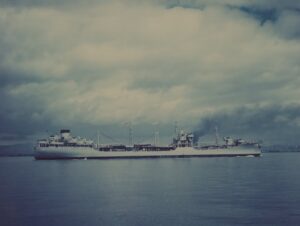
Boot camp lasted eight weeks and then it was time for Don’s first assignment. Instead of the Seabees as the recruiter promised, Don received orders to report to the USS Sabine (AO-25), a World War II oiler commissioned in December 1940 and homeported in Mayport, Florida. The Sabine had a storied past, including serving in the task force that launched the Doolittle raid on Tokyo in 1942. Don arrived onboard as an undesignated seaman, meaning he didn’t yet have any job specialty and would have to find one after he gained experience as a sailor. Like most undesignated seamen, he was assigned to the deck department, working hard with other new sailors to maintain the ship and its deck equipment and lifeboats. Deck maintenance work was never ending on Sabine, not only because the ship was nearly thirty years old, but also because of its constant exposure to salt water. Without proper maintenance, the ship would succumb to rust and corrosion. As a result, Don spent his time chipping off old paint from the hull and deck and repainting the surfaces to protect them from the elements.
Don also learned basic seamanship skills each time the Sabine got underway off the east coast of the United States. When the ship conducted gunfire exercises, Don and the other new sailors in the deck department went outside to watch the ship’s big 5-inch/38-calibre guns fire away. The noise was so loud, though, it continues to affect his hearing to this day. Looking back, Don wishes the Navy had provided him and his fellow sailors with hearing protection, both during his time onboard Sabine and subsequently during the small arms training he received, so he would not now be suffering from impaired hearing.
During one underway period in August 1968, the Sabine crossed the equator heading southward for a port call in Rio de Janeiro. Because crossing the equator is a significant event in any sailor’s career, Don participated in the traditional “Crossing the Line” ceremony, where uninitiated new sailors like Don, referred to as “pollywogs”, become experienced “shellbacks”. Don earned his “shellback” status after completing the ceremony and then had a great time in Rio, although he was disappointed to learn he could not practice the Spanish he had learned in school because the people in Brazil spoke Portuguese.
By the fall of 1968, the Sabine had reached the end of her illustrious career. In October, she sailed from Mayport to the Philadelphia Naval Shipyard to be decommissioned. This was a busy time for Don, as he and the other members of the deck department had to unload essentially everything from the ship that wasn’t welded in place so the ship could be mothballed. The work was grueling even for someone as big and strong as Don, and he injured himself carrying fifty-pound CO2 canisters off the ship. After two-weeks bed rest, he was back in action to finish the job. The Sabine’s last chapter closed on February 20, 1969, with the ship’s decommissioning.
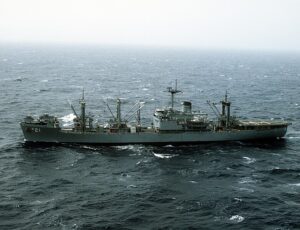
Once his work on Sabine was complete, Don reported to another ship homeported in Mayport, the USS Suribachi (AE-21). The Suribachi’s mission was to keep the Navy supplied with ammunition anywhere in the world. Just as he had done on the Sabine, Don started working in the deck department. However, after some time onboard, he met a Second Class Storekeeper (abbreviated SK2) working in the ship’s supply department. The Petty Officer told Don he would make a good SK and Don agreed, so he began “striking” to become an SK. Don was a natural for the SK job field, referred to as a “rating”, especially because his aunt had taught him how to type. That meant he could prepare requisitions and inventory records without having to hunt and peck for the right keys on the typewriter. He did so well, he promoted to SK3 (Storekeeper Third Class) while onboard the Suribachi.
Although the Suribachi was homeported in Mayport, it spent most of the first four months of 1969 in Mobile, Alabama, in overhaul, including some drydock time. The ship finally came out of the yards in May. Over the next few months, Don spent time underway in preparation for the ship’s upcoming December deployment to the Mediterranean Sea. The underway periods allowed Don to gain valuable experience as a Storekeeper and to visit places like New York City, Philadelphia, Ocho Rios Jamaica, and Guantanamo Bay Cuba, when the Suribachi pulled into port. He especially enjoyed Guantanamo Bay because he was able to visit a high school friend stationed there.
As the time for Suribachi’s Mediterranean deployment drew near, the ship’s captain received notice that the Navy needed him to release four sailors for duty in Vietnam. To Don’s surprise, his name was on the list. That meant instead of deploying to the Mediterranean Sea in December with the rest of the crew, Don headed to Naval Amphibious Base Little Creek in Virginia Beach, Virginia, for survival training and physical conditioning. He also spent time in the classroom and trained on weapons to ensure he was prepared for his new assignment in a war zone.
Don completed his training at Little Creek in January 1970 and boarded a military flight to San Francisco. Another military flight took him from there to Saigon, where he arrived on February 4, 1970. He had been told because he had three years of college, he might be assigned to Vice Admiral Elmo Zumwalt’s staff at Naval Forces Vietnam, which commanded a fleet of Navy swift boats operating along the coast and on the rivers in South Vietnam. Instead, he was issued an M16 without ammunition and sent to the Navy base at An Thoi on Phu Quoc Island off South Vietnam’s southwest coast in the Gulf of Thailand.
Don worked on a non-self-propelled barracks barge called Auxiliary Personnel Lighter Thirty (APL-30) which was tied up to the piers at the Navy base. The barge’s mission was to provide berthing and meals for the crews of the coastal swift boats, known as Patrol Craft Fast or “PCFs”, that operated from there. The PCFs departed each day on their missions patrolling the Vietnamese coast and then tied up to the barge at night so the crews could get a hot meal and bed down for the evening. Don, who was now a Storekeeper Second Class (SK2), was responsible for keeping the barge and the PCFs supplied with the food and other supplies they needed to get their jobs done. He even arranged for some movies to be shown to the PCF crews in the evenings after they returned from their missions. As he had seen the PCFs come back with bullet holes in them and evidence of American casualties, he knew just how important it was to support the sailors taking the fight to the enemy.
Coastal swift boats weren’t the only forces operating out of An Thoi; U.S. helicopters did so as well because the base had a 4,000-foot asphalt runway. Occasionally, the aircrews offered Don a ride and he got to fly on their missions. The rides provided a break from Don’s normal routine, but sometimes they proved a little too exciting if the helicopter got tasked with rocketing a Viet Cong target.
Part way through Don’s assignment, the Navy turned over responsibility for the coastal patrols to the South Vietnamese. Rather than turning over Don’s barracks barge as well, the Navy towed it to the swift boat base at Cat Lo, located sixty miles from Saigon on Vietnam’s southeast coast. Don performed the same support functions at Cat Lo that he did at Phu Quoc, except now the crews he assisted belonged to riverine patrol boats. These boats patrolled the Mekong River Delta to disrupt Viet Cong operations and frequently came under enemy fire.
Don’s one year tour in Vietnam ended in February 1971. He departed just as he had arrived, on a flight out of Saigon. As he prepared to board the plane, he mentally said goodbye to Vice Admiral Zumwalt, whom he never got to meet during his tour. Then he flew back to San Francisco and prepared to serve his final six months in the Navy.
When Don had six months left to serve of his four-year enlistment, the Navy offered him an early out option which he readily accepted in March 1971. This worked out well because while he was in Vietnam, he had written Wisconsin State University – Platte and asked to be re-admitted now that he had a more mature outlook toward his studies and his future. The university granted his request, allowing him to enroll in the fall 1971 term. As he had before, Don pursued a degree in mining engineering.
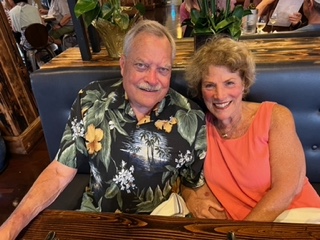
This time, Don’s educational plans worked out. He graduated from the University of Wisconsin – Platte (the university had changed its name) in May 1976 with a Bachelor’s degree in Mining Engineering. Better still, he used his GI Bill benefits to pay for his education and continued in the Naval Reserve until he graduated. After graduation, he went to work for the AMAX Coal Company in Terre Haute, Indiana, as part of a survey crew. From there he went to the Manley Brothers sand company, helping process sand from the Lake Michigan coastline. He finally found the job he was looking for when he went to work for his father as a manufacturer’s representative selling metal detectors and other equipment to the food industry, certifying their equipment’s status, and even repairing their equipment in the field. He continued in this role until he finally retired in 2022.
The other post-Navy event of lasting significance in Don’s life was his marriage to Virginia Ann “Ginny” Wolf in 1981. They have one son and are enjoying retirement together in Naperville, as Ginny retired from the family’s business at the same time Don did. Now as Don looks back over his Navy service, he is thankful his father channeled him in the Navy’s direction before his draft notice arrived. His father’s advice truly shaped the rest of Don’s life.
Voices to Veterans is proud to salute Storekeeper Second Class Donald A. Chivas, U.S. Navy, for his distinguished service onboard two Navy warships and for his tour of duty in Vietnam. The hallmark of his efforts was his support to the fleet, always giving the warfighters what they needed to successfully carry out their missions. We thank him for all he has done and wish him fair winds and following seas.
If you enjoyed Don’s story, please sign up for the Voices to Veterans Spotlight monthly newsletter by clicking here. Once each month, you’ll receive a new written veteran’s story directly in your mailbox. Best of all, it’s free and you can unsubscribe at any time.
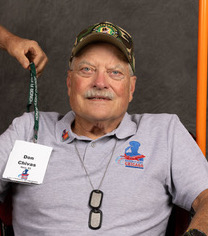

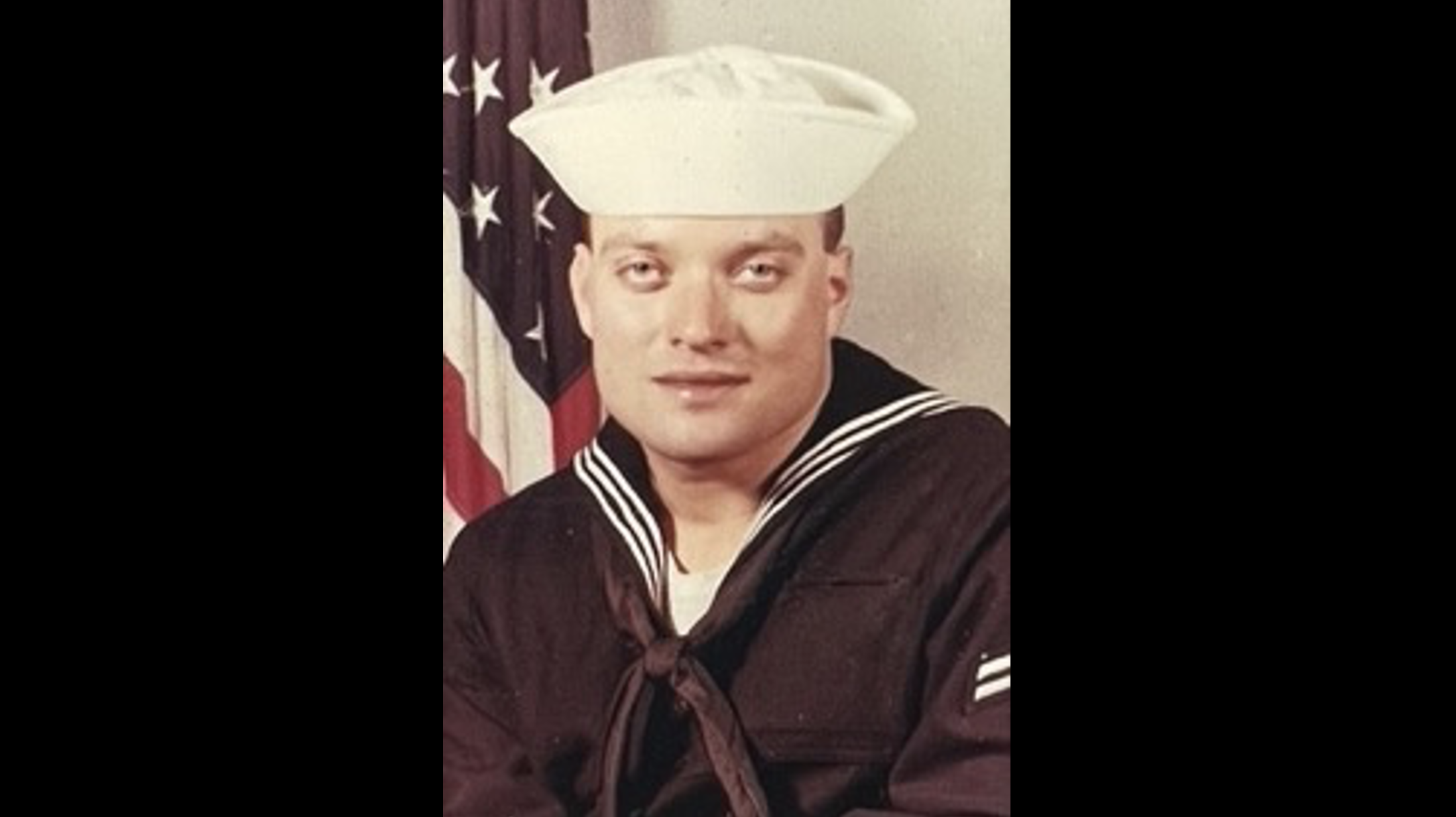
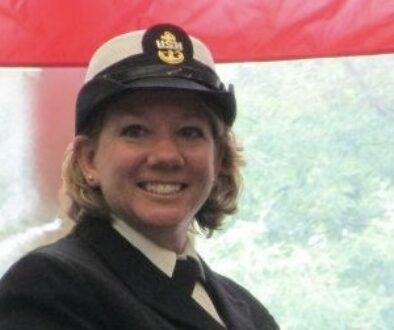
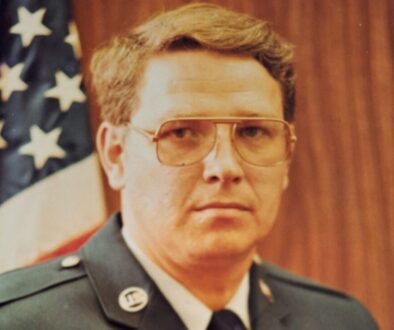

January 18, 2024 @ 5:51 PM
Fascinating story. Thanks.
January 19, 2024 @ 8:38 AM
Susan – thanks for reading Don’s story!